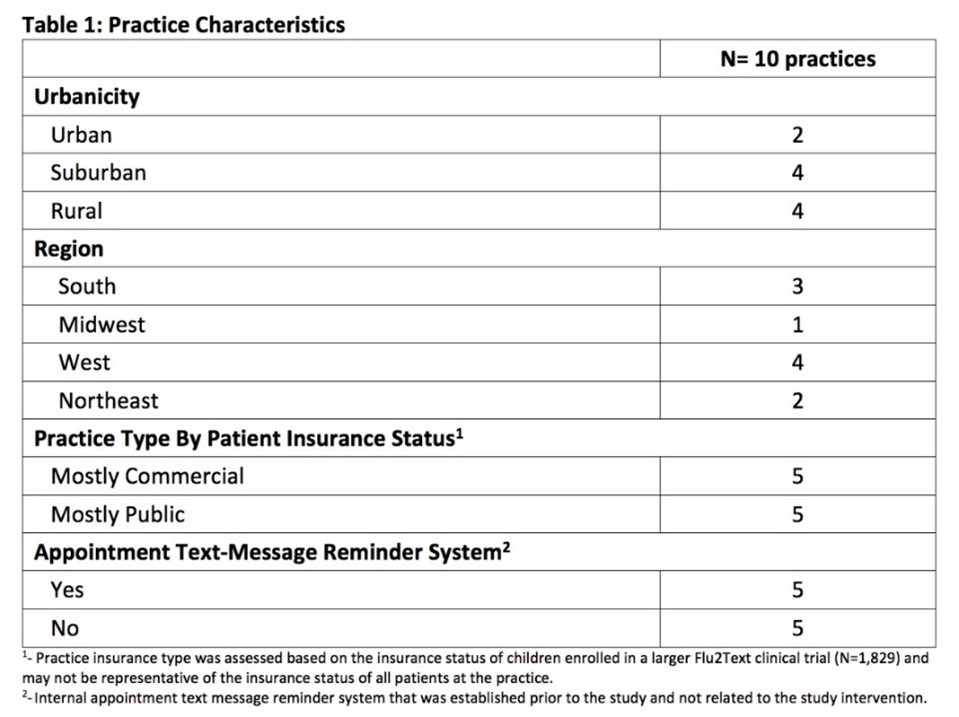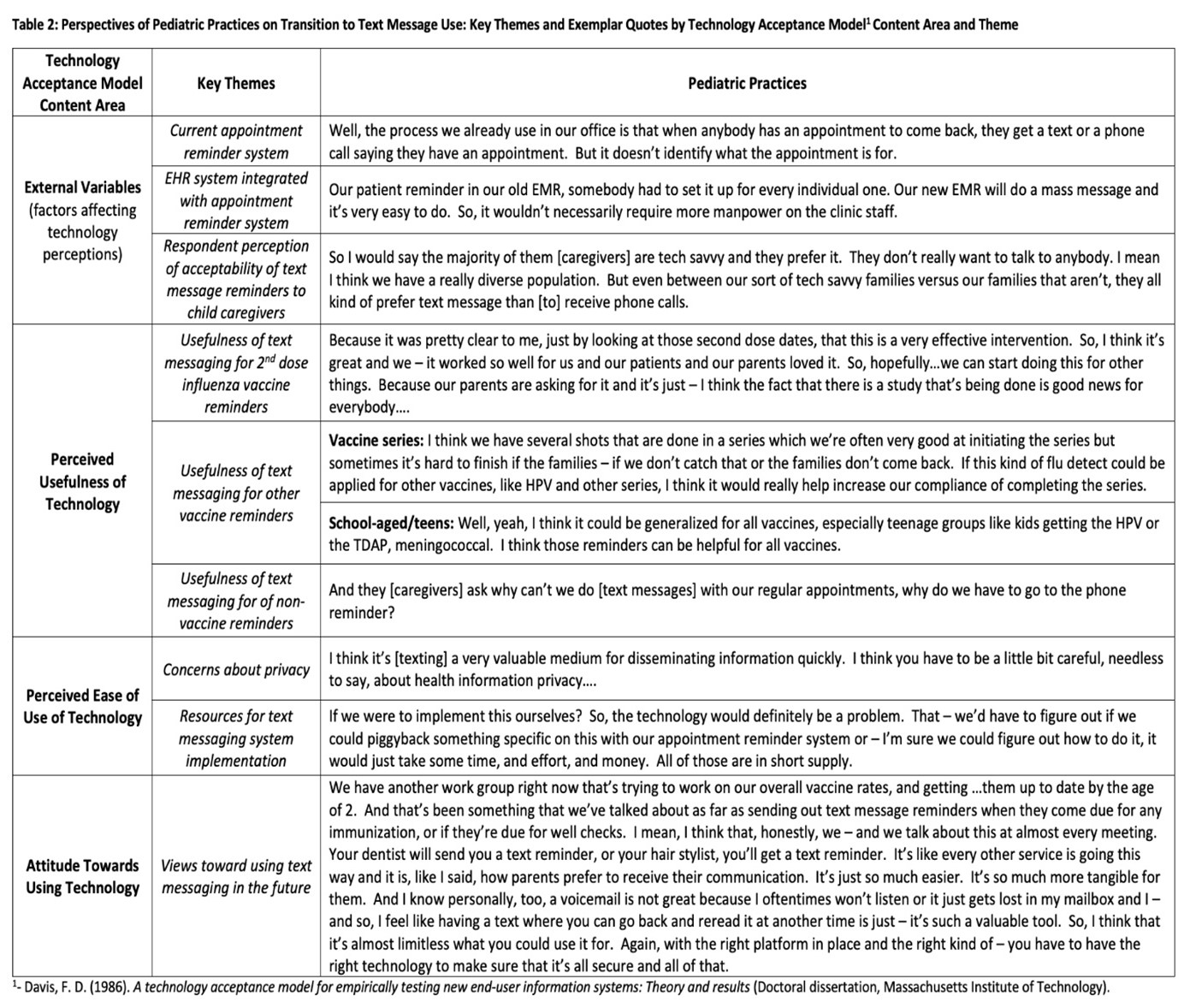Nekrasova E, Fiks A, Wynn C, Torres A, Griffith M, Shone L, Localio R, Shults J, Unger R, Ware L, and Stockwell M.
Presented at the 2021 Pediatric Academic Societies Annual Meeting
Background: Text messages can be an effective, low-cost and scalable mechanism of reminding patients about appointments, vaccinations, and other health information; however, they are yet to be consistently integrated into pediatric primary care.
Objective: To explore pediatric primary care clinicians and staff perceptions of pediatric office text message communication with families.
Design/Methods: As part of the NIH-funded Flu2Text randomized controlled trial (RCT) of 2nd dose influenza vaccine text message reminders, in July-August 2019 we conducted 7 focus groups and 4 individual interviews (up to 1 hour each) with pediatric clinicians (16 pediatricians, 9 nurse practitioners), registered nurses (n=3), medical assistants (n=5) and staff (n=5). Overall, 10 PROS pediatric primary care practices in 10 states were selected for participation based on stratified sampling of those with the highest (n=5) and lowest (n=5) effect sizes out of 37 primary care practices in the RCT (Table 1). Semi-structured discussion guides included possible uses, perceived usefulness and ease of use of text messages; practice’s current text messaging infrastructure; and barriers/facilitators to future use of texting. Utilizing conceptual content analyses based on the Technology Acceptance Model transcripts were independently coded by 2 investigators using NVIVO 12 Plus. Inter-coder reliability was high (K= .86); discrepancies were resolved by consensus.
Results: Overall, participants were supportive of text reminders for 2nd dose influenza vaccine, for other vaccines (e.g. HPV vaccine), and appointments (Table 2). Participants perceived text messaging as a preferred method of communication for caregivers. Health information privacy and patient confidentiality were the main concerns cited by clinicians and staff. Only practices with no internal appointment text-message reminder system (n=5) prior to the study, expressed concerns about technology implementation logistics, time and financial commitment. Themes did not differ between practices based on effect sizes in the RCT.
Conclusion(s): Text message reminders, for various uses, appear to be well accepted among a relatively diverse group of pediatric practices after participation in a trial of text message reminders for the 2nd dose influenza vaccine. Pediatric practices expressed interest in using text messages; however, they also expressed the need to address privacy, confidentiality and resource barriers to facilitate successful implementation.

Last Updated
07/19/2021
Source
American Academy of Pediatrics